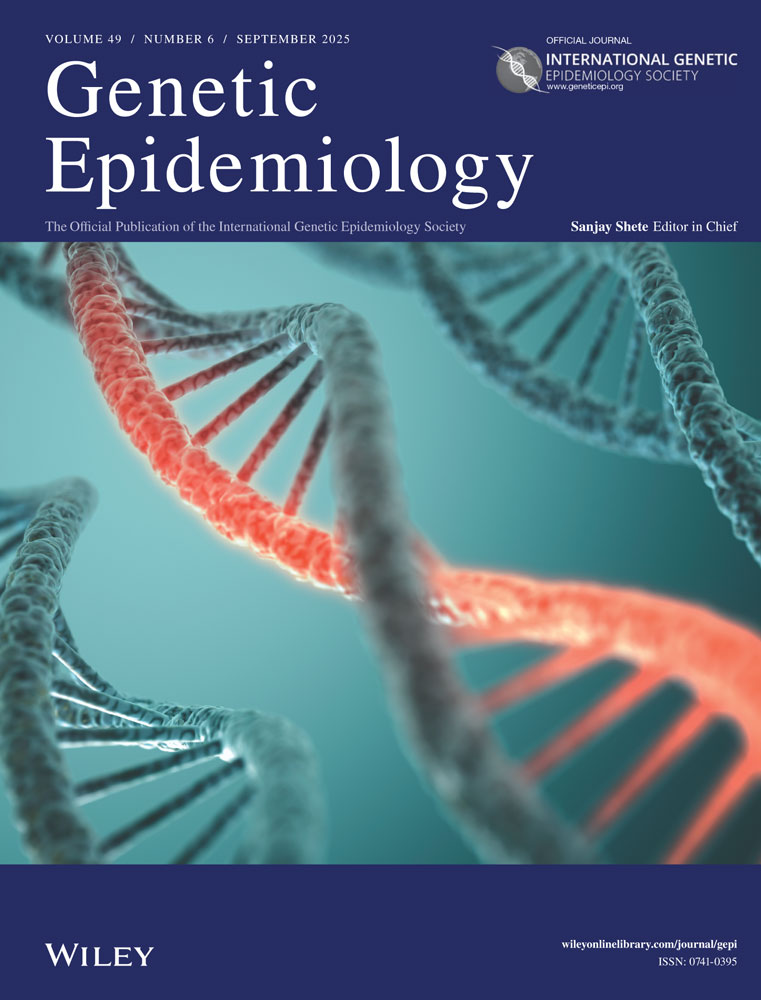Improving the robustness of the weighted pairwise correlation test for linkage analysis
Abstract
The weighted pairwise correlation (WPC) approach provides simple and flexible tests for genetic linkage which may be adapted to qualitative, quantitative, or age-dependent traits. These tests also seem to have good power. However, when working with large pedigrees, a disease susceptibility gene not linked to the marker studied induces correlations of the trait values, leading to inflated type-I errors for these tests. Thus, in its first version, the WPC approach is reliable when using sibships but not when using larger pedigrees. We propose a way for correcting the variances of the WPC statistics to take these correlations into account. A simulation study shows that the type I errors of the corrected statistics are good. The approach is based on a transformation which yields uncorrelated residuals. We study three statistics, based on the permutation distributions of residuals: one based on ordinary residuals adapted to quantitative traits, another based on martingale residuals adapted to survival data, and one based on rank residuals which can be used in both situations. We apply the corrected WPC tests to pedigrees of Alzheimer's disease previously analyzed with the first version of the method (WRPC). © 1996 Wiley-Liss, Inc.




